Explore the ALSO Children’s Homes Wishlist and help fill the season with joy for the children supported by ALSO.
Explore the ALSO Children’s Homes Wishlist and help fill the season with joy for the children supported by ALSO.
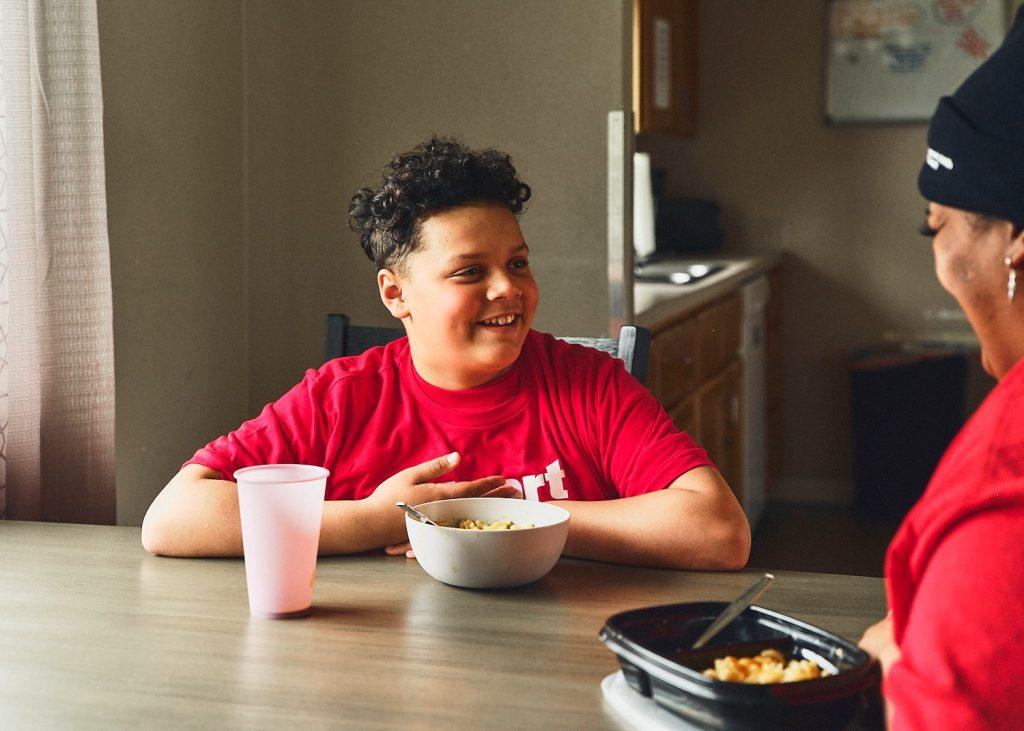
The purpose, function and characteristics of family preservations is integral to understanding the importance of children’s services at ALSO. ALSO is a support services provider to people with intellectual and developmental disabilities. Our team serves the Portland Metro area, Deschutes County, Klamath County, Umatilla County, Josephine County, Jackson County, and Harney County.
ALSO strongly believes in the value of family preservation services for children with intellectual and developmental disabilities. When a child with disabilities lives in ALSO’s residential children’s home in the Children’s Services Program, they are in a safe and nurturing environment that has the supports they need to grow. The goal is to allow the child to learn new skills so that they can integrate into their family unit with these skills in practice. With the new supports, which blend extremely well with family preservation services, these children can thrive in their personal home environment.
Let’s talk specifics on family preservation services and how the Heart Work at ALSO meshes with these types of interventions. All our support services benefit children with disabilities, their families, friends, and caregivers.
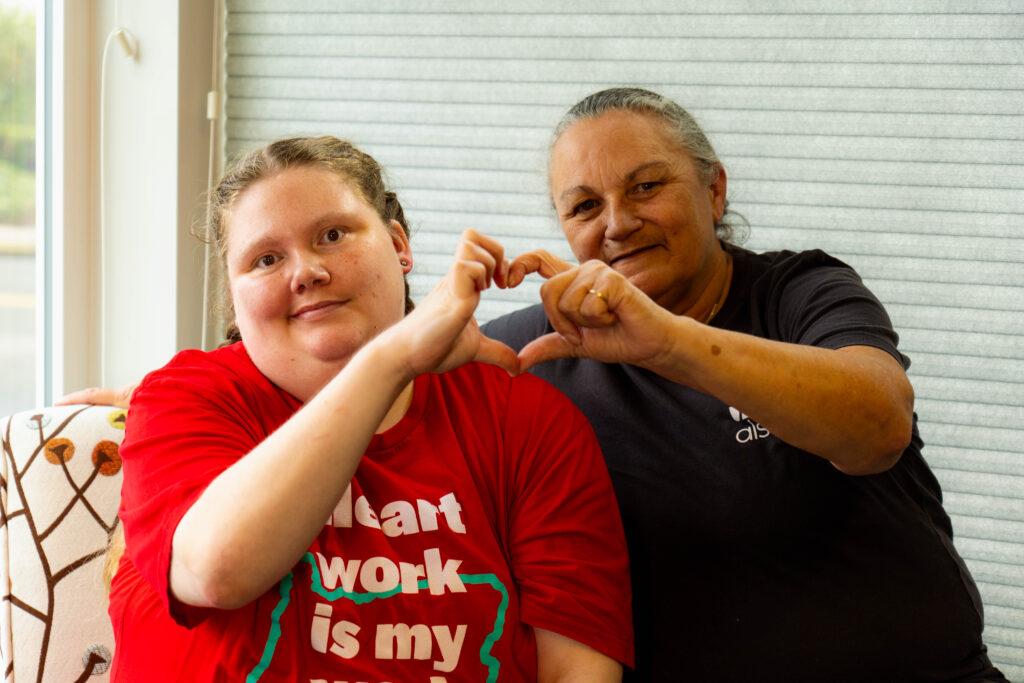
Family preservation services can be described as support programs that help families cope with problems and situations which can interfere with the ability to properly nurture and care for their children. One of the goals is to maintain positive relationships with parents, guardians, and family members while still ensuring child safety.
The family preservation service delivery model was established in part as a response to the Adoption Assistance and Child Welfare Act of 1980. It required state human services agencies to make ‘reasonable efforts’ in preventing children from entering foster care. Furthermore, for children who were currently in foster care, it mandated efforts to re-integrate them with their families. The Family First Prevention Services Act followed in 2018. This Act provided even more federal resources to help families in crisis to avoid out-of-home placement and stay together.
Although family preservation programs may vary from state to state, they share a few common characteristics. They are:
In a number of states, such as Oregon, qualified residential treatment programs may be utilized when in-home services are not an option.
In some cases, intensive family preservation services (IFPS) may be necessary. This would include 24-hour availability of staff, and a short duration of services. Case managers typically have a relatively small caseload. Also, service delivery occurs in the family home or in another environment familiar to the family.
LEARNING MORE: A Deeper Dive into Intensive In-home Services
Effective family preservation services are often extremely beneficial for kids with disabilities. This specialized type of family support programming can be an important link in establishing an in-home environment that allows them to reach their full potential while remaining with their family.
Research indicates that children with intellectual and developmental disabilities have a higher probability of being involved with child protective services, as well as out-of-home placement. An extensive literature review emphasized significant challenges related to obtaining adequate family services support, resources, and training.
It’s very hard to anticipate the impact that a child’s disability might have on the entire family. Parents and siblings must learn how to change their expectations of what they can do together as a family—on vacations, recreational activities, and routine outings—such as going to a school play or even the grocery store. It’s easy for families of children with disabilities to become socially isolated from the neighborhood and community. This might be due to societal misconceptions about disability, or also some hesitation on the part of the family.
Financial challenges related to effectively raising a child with a disability can be extreme. Parents often have to take off work in order to take their children to lengthy appointments, attend school meetings, and communicate with caregivers. This can easily add to job stress and loss of pay because the parent’s sick time pay is often exceeded.
If parents are trying to also address problems such as domestic violence, substance abuse, or other mental health issues, it tends to exacerbate stress and increase family conflict. This affects kids with disabilities and anyone else living in the household, making it increasingly difficult to develop unity and positive family functioning.
LEARNING MORE: Oregon Child Welfare Vision for Transformation and ALSO Cherished Children’s Services
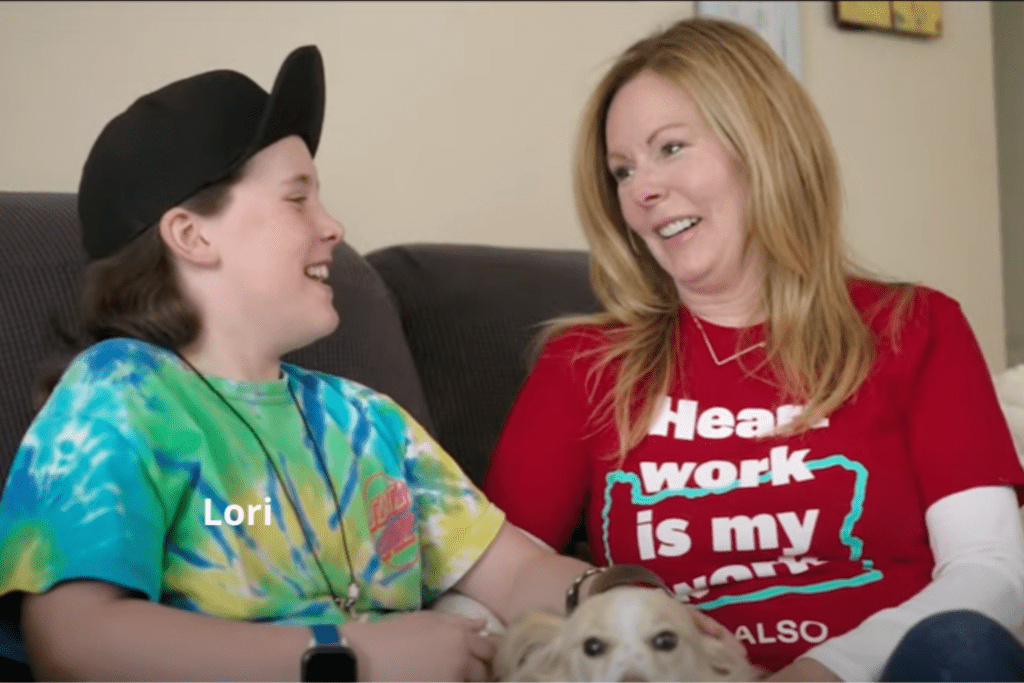
In addition to describing a set of reforms for child welfare agencies, family preservation services represent a changing philosophical approach to helping families in need. Historically, when a family was in crisis, the inclination was for social workers or other human services professionals to believe that children were better served through group homes, foster care placement, or adoption. The family’s needs were barely addressed.
Thankfully, this thinking has changed. Today, parents and other loved ones are front-and-center as collaborative partners in helping their children and improving family function. Instead of trying to instruct and direct families to fit a preconceived notion of a “good family,” we now acknowledge the fact that no two families are alike, which creates a more diverse community and society. This is something to celebrate!
There are several other reasons why family preservation services are important, including:
There are multiple benefits to families and children when they are able to participate in family preservation services. One major benefit is that it’s a proactive approach. It helps at-risk families to address concerns and stressors prior to the difficulties of separation. Other benefits of these types of family support services include the following:
LEARNING MORE: Oregon Title IV-E Prevention Plan
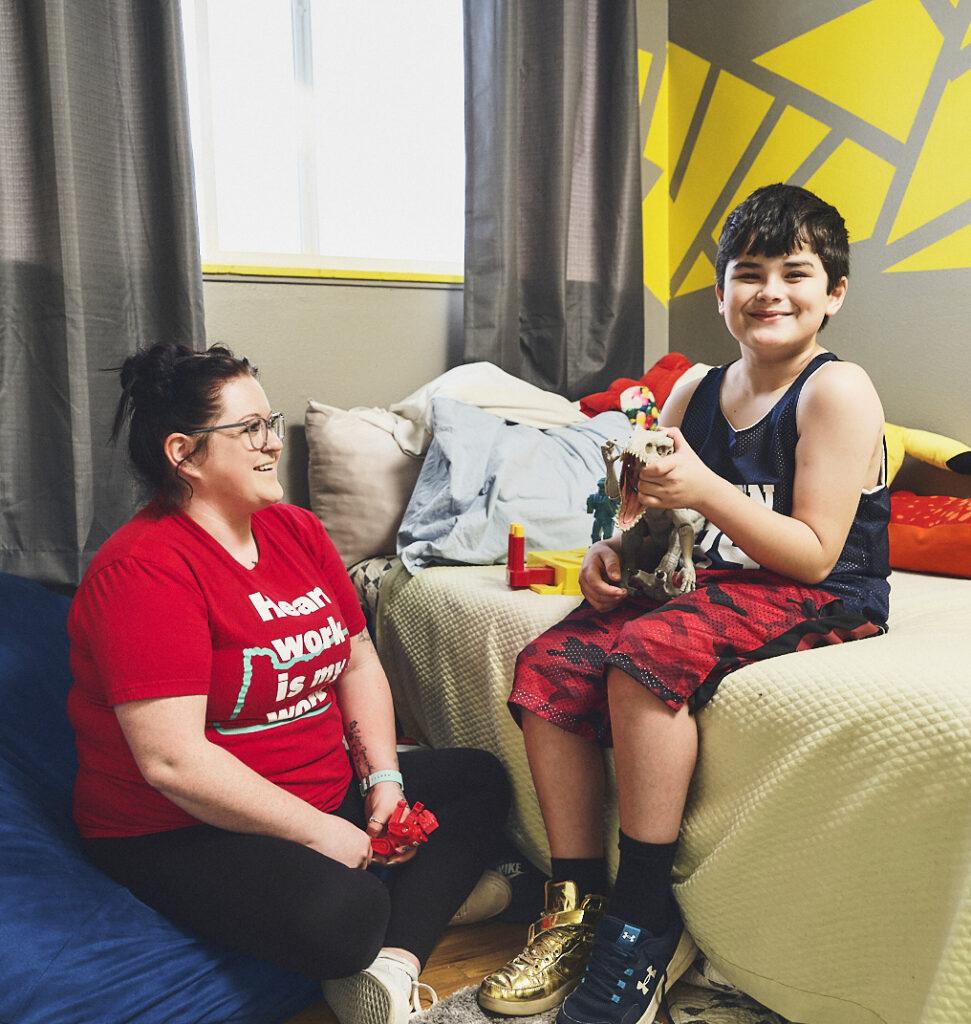
ALSO supports family preservation services for children with intellectual and developmental disabilities through two models of care: in-home services and residential services.
Parents are presented with a choice between two distinct types of support services for their children: residential services and in-home support services. In instances where families require only limited assistance, they often opt for in-home support services. This option allows the child to receive necessary support while residing within the family home. In-home support services are characterized as the less extensive of the two, with our dedicated Children’s Support Professionals (CSPs) primarily focusing on guiding youth towards achieving their Individualized Service Plan (ISP) objectives and honing their Activities of Daily Living (ADLs) skills.
For families facing housing instability or seeking more comprehensive support, our residential support services provide a more appropriate solution. In this scenario, the child resides within a residential home, supervised around the clock by CSPs. Depending on the demand for residential services, the child may share the home with a roommate or two, each enjoying their own private bedroom. Within the realm of residential support services, the child receives a comprehensive array of assistance spanning educational, medical, skill development, and community integration. The overarching aim typically centers on reuniting the child with their family, and we diligently work towards providing the necessary support to achieve this goal.
In addition to helping kids achieve self-sufficiency in daily life skills, we help them improve their abilities in:
What the ALSO team has found is that, as children in our programs improve their life skills, they become more self-confident and fulfilled in their daily life. This in turn results in improved relationships with family members.
ALSO views the families of the children that we support as key players in the achievement of independence in the least restrictive environment and full community inclusion. You can trust that we will respect all cultural values, concerns, and goals for the future of your child. We understand fully that you want your family to thrive. We also know that you want your child to grow into the adult they want to be.
Sunny Ellis, Behavioral Specialist with the Children’s Program, wants family members to be as involved as possible:
“We’re a problem-solving collaborative. But we are also flexible and understanding about the variety of family dynamics that we work with… We understand that continuing to strengthen natural support systems will be the best and most durable kinds of supports. Though we get to be a part of a family’s chapter, we are not writing their whole story.”
ALSO service providers and administrative staff are extremely helpful when families need additional resources to meet the needs of their child with a disability. We have extensive experience in guiding families through formal family preservation services in addition to assisting with other programming, such as competitive employment and Individualized Education Plans (IEPs).
We have a 25-year plus history in the Oregon assisting families who need everything from financial assistance to case management, and more!
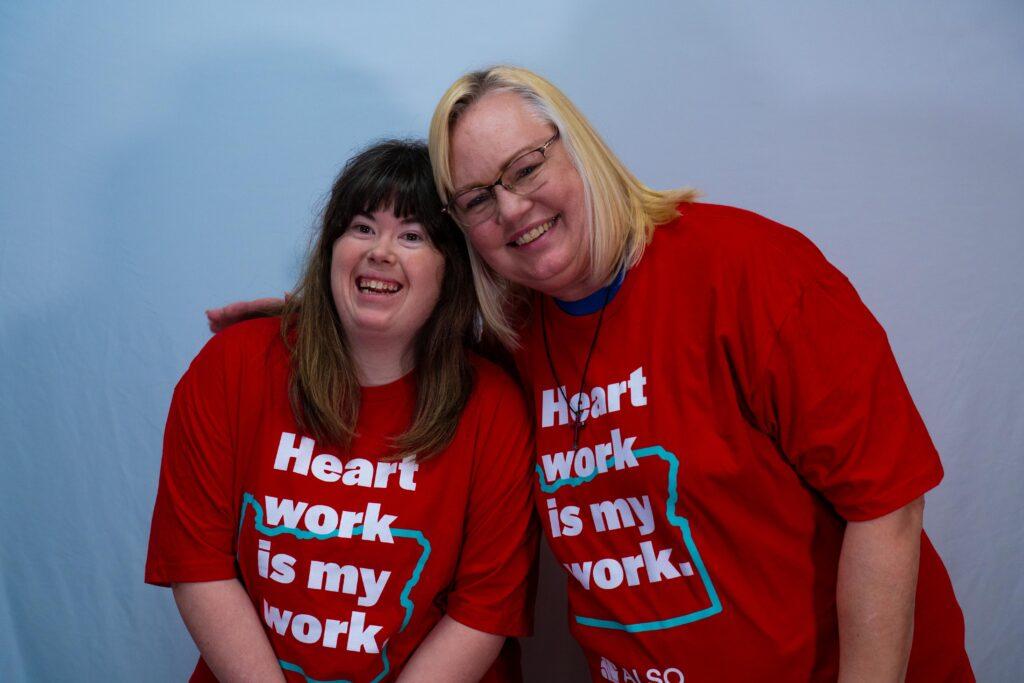
Family crises oftentimes have a habit of coming up when least expected. Please know that we’re here to assist you during any or all of the rough spots on your family journey. When we strengthen families, we move forward in achieving full community inclusion for people with intellectual or developmental disabilities.
If your family is interested in our Children’s Services, please let us know. Contact us today at info@alsoweb.org, or call us at 503-489-6565.

Sign up for our newsletter to get our latest news, content, and job opportunities.
Help us ensure that everyone has the same opportunities in their home, workplace and community. Let’s make dreams!
